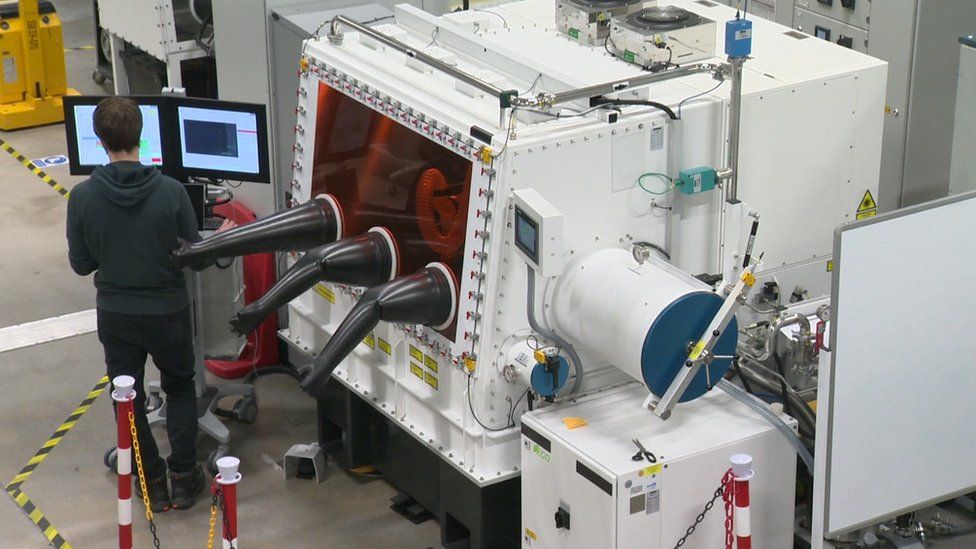Brexit has given the UK back its independence and boosted innovation, inventor Sir James Dyson has said.
"We've got our freedom, we can make trade agreements with other countries outside Europe [and] we can employ people from all around the world," Sir James told the BBC.
The latest statistics for February show UK exports to the EU remain below the same level last year.
He also defended moving Dyson's global headquarters to Singapore in 2019.
At the time, the pro-Brexit entrepreneur was accused of "hypocrisy", after claiming the UK would gain more from leaving the EU than it would lose.
"We're a British company - I've put a lot into this country," he said.
"I can't make things here and bring over all the components from the Far East here, assemble them here and then send them back to the Far East. That just doesn't work."
The interview came as Dyson announced plans to create 200 new jobs at its research facilities in Malmesbury and Hullavington, Wiltshire.
The plans are part of a £2.75bn global investment plan into emerging technologies and products, announced in November.
Sir James said the end of the UK's transition period with the EU had enabled Dyson to hire the engineering talent it was lacking in the UK.
Freedom of movement between the UK and EU has ended and the government has introduced a points-based immigration system which it says "treats all applicants equally, regardless of where they come from".
But experts say UK companies now face significant costs and administration when hiring EU workers that did not exist before.
"We have 60 different nationalities on this site. I employ them from all over the world," Mr Dyson said.
It is certainly true that Brexit, and specifically leaving the Customs Union, gives Britain freedom to do new trade deals without having to work through the EU's external trade policy.
So far, that freedom has been devoted to maintaining the level of access to certain overseas markets that British business already had by virtue of EU trade agreements.
Others are now possible and for some the US would be the big prize. But it won't be easy - food standards for example are a contentious issue - and most economic analysis suggests the benefits will be very modest.
On hiring foreign nationals, Sir James could have employed non-EU people before. There were hoops to go through and even with the new immigration system there still are. The terms of Brexit make it more difficult for EU nationals than it was while the UK was a member.
Taxes
Sir James said the reason he had to move Dyson out to Asia was because Dyson's British suppliers "didn't want to expand with us".
When asked whether he could be making more innovation happen in the UK, he said: "I've invested about £2bn on this site [in Wiltshire].
"I'm taking on more people, I employ 4,000 people here, I pay a large amount of tax here."
He said that the invention of the Oxford-AstraZeneca vaccine showed that the UK had "an independence of spirit" that was now able to shine through.
AstraZeneca is a UK-Swedish company.
"We had to develop our own... a world record-beating vaccine produced in record time, and that's because we produced it."
Sir James said that Asia was the fastest growing market in the world and that it was "very important" for Dyson to have a presence there.
"It would be arrogant to think that we could design and develop products for Asia and Britain," he said.
"We can develop technology, but understanding what Asians want and what works in the market - we have to be there, we have to be immersed in it."
Related Topics
https://www.bbc.com/news/business-56741000



